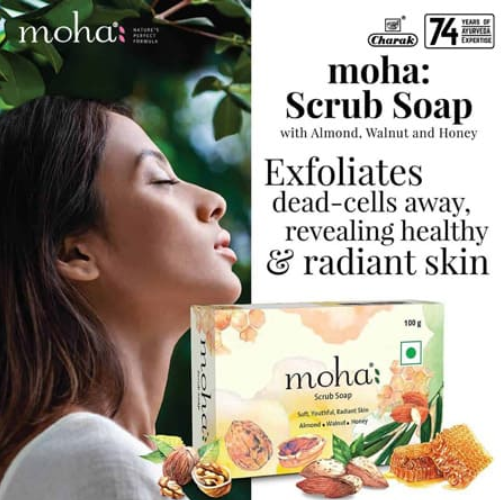Ayurveda Ritual of Bathing for Personal Hygiene: A Holistic Approach to Boosting Immunity
Ayurveda, the ancient system of medicine that originated in India over 5,000 years ago, offers a holistic approach to personal hygiene, incorporating a ritual of bathing that not only cleanses the body but also enhances overall well-being. In this article, we will explore the Ayurvedic concept of bathing and how it can boost immunity, focusing on the principles of this time-tested tradition and its relevance in the modern world.
Understanding Ayurveda and Immunity
Ayurveda is a comprehensive system of medicine that emphasizes the balance of the mind, body, and spirit. Central to Ayurveda is the concept of 'Ojas,' which represents the essence of immunity and vitality. Ojas is said to be produced when our body functions optimally and is in harmony with nature. To enhance and maintain Ojas, Ayurveda recommends a variety of practices, one of which is the Ayurvedic ritual of bathing.

The Ayurvedic Ritual of Bathing
1. Selecting the Right Time: Ayurveda suggests bathing in the morning or early evening to align with the body's natural rhythms. Morning baths, in particular, are considered highly beneficial for kickstarting the day with fresh energy.
2. Water Temperature: The temperature of the water should be moderate, neither too hot nor too cold. Lukewarm water is commonly recommended in Ayurveda as it is believed to balance the doshas, or body constitutions.
3. Abhyanga - Self-Massage: Before you begin your bath, Ayurveda recommends practicing Abhyanga, which is a self-massage with warm oil. This nourishes the skin, improves circulation, and provides a protective layer against environmental stressors.
4. Choosing Cleansing Agents: Traditional Ayurvedic options include herbal soaps, powders, or pastes that are suited to your specific dosha. For example, neem and tulsi are popular choices known for their antibacterial properties.
5. Dry Brushing (Udvartana): Dry brushing the body before your bath helps to exfoliate dead skin cells and stimulate lymphatic circulation, aiding in detoxification.
6. Head-to-Toe Cleansing: Ensure that your bathing routine covers all areas of the body, including the face, ears, mouth, and feet. Ayurveda believes in a thorough and holistic approach to cleansing.
7. Using Natural Scrubs: Incorporating natural scrubs like besan (gram flour) and turmeric can further enhance the cleansing process and promote healthy skin.
8. Aromatherapy: The use of essential oils such as lavender, eucalyptus, or rose can elevate the bathing experience and provide emotional benefits, promoting relaxation and reducing stress.
9. Mindfulness: While bathing, practice mindfulness, allowing your mind to focus on the sensations of the water, the aroma, and the act of cleansing. This can have a profound impact on mental well-being.
10. Drying and Dressing: Post-bath, it's recommended to gently pat dry with a clean towel and choose clothing made from natural fibers to allow the skin to breathe.
The Immunity Connection
Ayurveda attributes many health benefits to the ritual of bathing, particularly in terms of immunity. The practice is believed to stimulate the lymphatic system, aid in detoxification, and promote healthy circulation. Here's how this traditional practice can boost your immunity:
Detoxification: Bathing, especially with lukewarm water, induces mild sweating. Sweating is a natural way for the body to expel toxins, and it can help to remove impurities and waste products from the skin and underlying tissues.
Lymphatic Stimulation: The gentle massaging action during bathing, along with dry brushing, stimulates the lymphatic system. This system plays a crucial role in eliminating waste and toxins from the body, thereby bolstering your immune system.
Stress Reduction: The aromatherapy aspect of bathing, combined with mindfulness, reduces stress levels. High stress can weaken the immune system, so keeping stress in check is crucial for maintaining a robust immune response.
Enhanced Skin Health: The use of natural and Ayurvedic cleansing agents and scrub soap can improve skin health. The skin is a vital organ in immunity, serving as a protective barrier against external pathogens.
Improved Circulation: Bathing can enhance blood circulation, ensuring that essential nutrients are transported to various parts of the body, including the immune system's components.
Modern Relevance
In today's fast-paced world, Ayurveda's ritual of bathing is more relevant than ever. The stress and pollutants of modern life can take a toll on our immune system, making it essential to adopt holistic practices to boost immunity. Ayurvedic bathing offers a simple yet effective way to support your body's defense mechanisms.
Incorporating Ayurveda into your daily routine doesn't require a complete overhaul of your lifestyle. You can gradually introduce these practices and observe the positive impact they have on your well-being. Immunity-boosting practices can be especially beneficial in our current global context, where we seek ways to enhance our body's ability to ward off illnesses.
Conclusion
The Ayurvedic ritual of bathing is a time-tested practice with profound benefits for personal hygiene and immunity. By embracing the holistic principles of Ayurveda in your daily life, you can elevate your well-being and enhance your body's natural defenses. In a world filled with stressors and challenges, these time-honored traditions offer a path to better health, both physically and mentally. So, consider adopting this ancient wisdom into your daily routine and experience the remarkable impact it can have on your immunity and overall health.